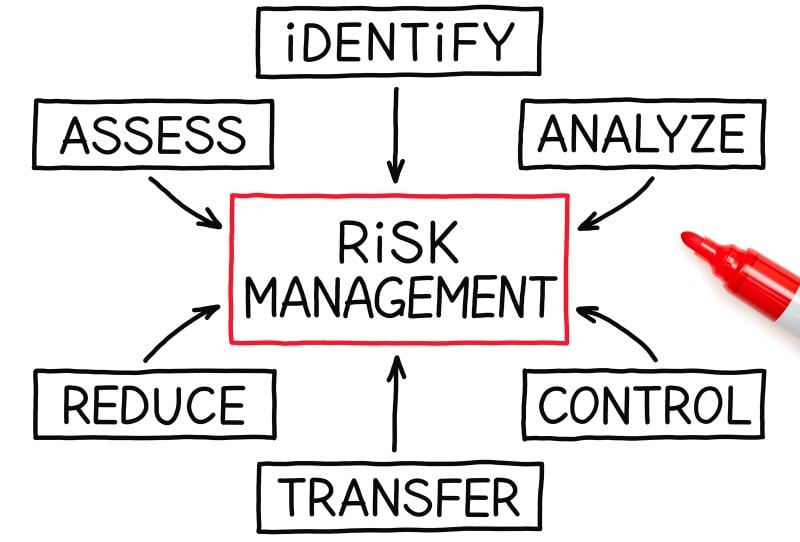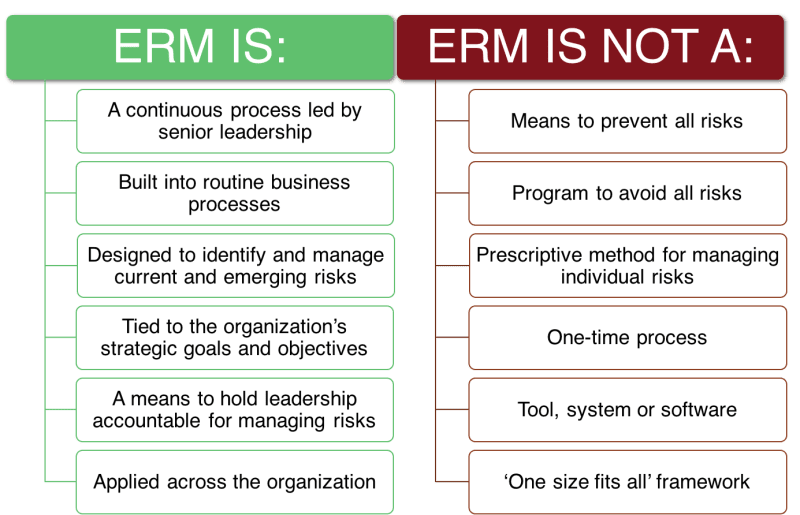Insider threats support a reliable foundation for better security implementation
Wiki Article
Check out the Function of AI in Supporting Ethics and Integrity to Combat Expert Threats Properly
The combination of AI in organizational structures has actually ended up being crucial in dealing with insider threats. By using advanced analytics and real-time monitoring, AI systems can identify inconsistencies from ethical habits amongst staff members (Insider threats). This positive strategy not only enhances compliance yet likewise fosters an atmosphere of depend on. As business progressively count on these innovations, inquiries arise about their effectiveness and possible implications for workplace culture. What exists in advance in the advancement of AI's role in advertising integrity?Comprehending Expert Dangers and Their Influence On Organizations
Although organizations typically concentrate on outside hazards, expert hazards pose a substantial danger that can undermine safety and stability. These risks emerge from people within the company, such as specialists or staff members, who may misuse their access to delicate info for individual gain or harmful intent. The effect of insider threats can be serious, causing financial losses, reputational damages, and lawful implications.Variables adding to expert hazards consist of dissatisfaction with the workplace, absence of oversight, and insufficient staff member training on protection protocols. Organizations commonly have a hard time to recognize these hazards, as they can be hard to spot till substantial damage has happened. Prevention techniques have to focus on promoting a culture of depend on and responsibility, alongside applying durable surveillance and reporting systems. By identifying and resolving the complexities of insider threats, organizations can boost their security posture and secure their beneficial possessions from interior threats.
The Evolution of AI in Office Safety And Security
As companies significantly challenge varied safety and security challenges, the combination of expert system (AI) in work environment safety has developed considerably. Initially, AI applications focused largely on automating standard safety methods, such as access control and surveillance. Advancements in machine knowing and data analytics have transformed AI into a positive device qualified of determining prospective risks and vulnerabilities in real-time.Organizations currently utilize AI-driven systems to examine large amounts of information, enabling them to spot anomalous actions that might indicate expert dangers. This development has led to the growth of advanced formulas that can pick up from historical cases, improving the system's predictive capacities. In addition, AI tools are significantly utilized to simplify event response processes, permitting safety teams to act swiftly and efficiently.
How AI Monitors Staff Member Behavior for Ethical Conformity
Expert system plays a crucial function in monitoring worker actions to ensure moral compliance within companies. AI systems analyze huge amounts of information created by workers, consisting of communications, transactions, and access to delicate information. By utilizing advanced formulas, these systems can determine discrepancies from developed ethical criteria and business plans.Artificial intelligence designs continually adjust to recognize patterns of actions that may indicate moral violations, such as unauthorized data accessibility or uncommon transaction activities. Insider threats. Furthermore, AI-driven devices can provide real-time informs to monitoring, assisting in timely interventions when possible risks are detected
The integration of AI into conformity monitoring not just enhances the organization's capability to maintain honesty yet also fosters a culture of responsibility amongst staff members. By advertising openness, AI systems act as a deterrent versus dishonest habits, making certain that staff members continue to be straightened with business worths and moral criteria.
Assessing Patterns: Identifying Risky Behavior With AI
An expanding variety of companies are leveraging AI to analyze patterns that may suggest dangerous actions among workers. By using sophisticated algorithms, these systems can look with vast amounts of information, recognizing abnormalities in individual behavior that could recommend possible insider dangers. For circumstances, AI can detect unusual accessibility patterns to delicate information, such as workers accessing files outside their typical scope of job or during irregular hours. Additionally, behavior analytics can highlight frequent modifications in an employee's interaction style or collaboration routines, which may symbolize underlying issues. This aggressive technique enables companies to pinpoint threat elements prior to they escalate into substantial risks. The combination of AI right into keeping track of techniques not only boosts safety but likewise cultivates a culture of accountability and honest behavior. By identifying these patterns, companies can much better comprehend the behavior characteristics within their workforce, eventually advertising a more secure and more honest job environment.
Real-Time Insights: Immediate Reactions to Prospective Hazards
Real-time insights through predictive analytics and automated sharp systems play an important function in resolving potential risks to principles and honesty. By leveraging these technologies, organizations can anticipate risky habits and respond immediately to alleviate threats. This aggressive strategy boosts accountability and fosters a culture of stability in numerous settings.Predictive Analytics Applications

Automated Alert Systems
Predictive analytics provides a structure for companies to enhance their responsiveness to ethical issues with automated alert systems. These systems utilize real-time data to check tasks, detecting abnormalities that may signify potential expert dangers. By leveraging device learning formulas, automated signals can determine patterns of behavior that differ established standards, enabling speedy intervention. This immediacy is vital in mitigating risks linked with dishonest methods. Automated alert systems can simplify communication amongst relevant stakeholders, making certain that prospective threats are resolved immediately and efficiently. As organizations increasingly count on AI-driven options, the combination of automated sharp systems will play a crucial role in cultivating a culture of principles and honesty, ultimately guarding business assets.Promoting a Society of Trust Via AI-Driven Transparency
AI-driven transparency can substantially enhance trust within organizations by promoting responsibility and open interaction. Via real-time monitoring services, stakeholders can acquire understandings right into procedures and decision-making, promoting a culture of stability. Data-driven decision-making additionally sustains this openness, visit this site right here allowing educated selections that straighten with ethical requirements.Enhancing Openness and Accountability
Just how can organizations effectively foster a society of trust fund? By boosting openness and accountability via the strategic use fabricated knowledge. AI can aid companies methodically track decision-making processes, guaranteeing that actions align with recognized ethical requirements. This transparency allows employees to see the rationale behind policies and choices, reducing ambiguity and promoting a feeling of fairness. Furthermore, AI-driven devices can assist in clear interaction regarding assumptions and obligations, equipping individuals to take ownership of their activities. As responsibility ends up being embedded in the organizational culture, employees are more probable to take part in honest behavior, knowing their activities are checked and examined. Inevitably, this method grows an atmosphere where count on can thrive, significantly reducing the threat of insider risks.Real-Time Monitoring Solutions
As organizations significantly look for to promote a society of trust fund, real-time tracking solutions arise as a critical tool in boosting openness. These AI-driven systems continuously track tasks, offering insights into customer behavior and prospective abnormalities that may show insider threats. By carrying out such monitoring services, companies can proactively identify risks, making certain prompt actions to dubious activities. This not only safeguards delicate details but likewise enhances a commitment to ethical methods. The clear nature of real-time monitoring assists build employee self-confidence, as people are conscious that their actions are being observed for the higher good. Inevitably, these solutions serve to grow a workplace setting grounded in count on, liability, and ethical honesty, vital for mitigating insider risks successfully.
Data-Driven Choice Making
Real-time tracking options prepared for data-driven choice production, which substantially boosts business openness. By leveraging AI innovations, companies can assess vast quantities of information to identify patterns and abnormalities a measure of possible insider dangers. This logical technique allows stakeholders to make educated decisions based in empirical proof, promoting a culture of trust amongst workers. Transparency in decision-making processes, bolstered by AI-driven understandings, urges responsibility and honest behavior. In addition, it allows organizations to proactively resolve susceptabilities, making sure that actions taken are warranted and interacted clearly. As an outcome, the application of data-driven techniques not just minimizes threats associated with expert risks however additionally strengthens the values of integrity and honest conduct within the organizational structure.Future Patterns: The Duty of AI in Enhancing Work Environment Ethics
While companies increasingly transform to synthetic knowledge for operational performance, the capacity of AI to boost work environment ethics is getting prominence. Future fads suggest that AI will certainly play an important duty in creating honest frameworks and standards, enabling organizations to navigate complicated ethical problems. By analyzing substantial amounts of data, AI can recognize patterns of unethical actions and supply understandings that promote openness and liability.Additionally, AI-driven tools can assist in real-time surveillance of employee communications, guaranteeing adherence to moral requirements. This positive strategy not only reduces expert hazards but likewise grows a culture of stability. As organizations accept AI modern technologies, they have to additionally focus on moral programming and algorithmic prejudice decrease to assure fairness.
In this progressing landscape, the integration of AI in honest techniques stands for a transformative change, fostering an environment where integrity is not merely expected but systematically reinforced.
Frequently Asked Concerns
How Does AI Differentiate Between Benign and Malicious Actions?
AI separates between benign and harmful actions by examining patterns in individual actions, using artificial intelligence formulas to determine abnormalities, and my latest blog post reviewing contextual data to identify whether activities straighten with recognized norms or display possible threats.Can AI Devices Replace Person Judgment in Honest Decision-Making?
AI devices can not totally replace human judgment in moral decision-making. While they can evaluate information and recognize patterns, the nuanced understanding of context, values, and ethical ramifications still requires human insight and discernment.What Are the Personal Privacy Effects of AI Keeping Track Of Staff Member Habits?

Just How Can Organizations Make Sure AI Algorithms Are Fairly Made?
Organizations can ensure AI algorithms are fairly developed by carrying out transparent development processes, including diverse stakeholders, performing regular audits, and sticking to recognized honest frameworks that prioritize fairness, responsibility, and respect for individual privacy and rights.What Training Is Required for Personnel to Understand Ai's Ethical Duty?
Personnel training need to include fundamental AI ethics, data personal privacy, and bias awareness. Workshops, case studies, and interactive sessions can boost understanding, making certain employees identify AI's moral ramifications and its function in cultivating honesty within the organization.
Synthetic knowledge plays a vital duty in monitoring employee behavior to assure ethical compliance within organizations. The integration of AI into monitoring practices not just boosts safety and security yet also cultivates a society of accountability and moral actions. While organizations increasingly encounter moral predicaments and possible honesty violations, anticipating analytics applications offer timely understandings that can assist mitigate these risks. Predictive analytics offers a structure for companies to boost their responsiveness to ethical issues with automated sharp systems. Future fads show that AI will play a crucial role in establishing honest structures and standards, permitting companies to browse intricate moral predicaments.
Report this wiki page